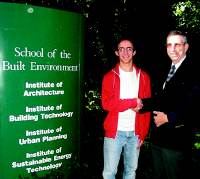New pressures on climate change
Terry Wyatt, chairman of CIBSE’s Carbon Task Group, has responded to new research data from Hawaii showing an acceleration in the increase of carbon dioxide in the atmosphere, with the statement: ‘Climate change is a reality, and these new findings suggest that the increase in global temperature is itself having the effect of increasing the carbon-dioxide concentration in the atmosphere over and above than produced by human activity. ‘Although it will take several years’ findings to confirm the trend, it could mean that our future scenarios for climate change will have to be reassessed. ‘The Government and society at large should approach the challenge of reducing carbon emissions with renewed urgency. CIBSE members are already doing their bit in reducing carbon emissions from buildings, but they cannot succeed alone.’ The research in Hawaii by Prof. Charles Keeling of the University of California shows that increases in atmospheric carbon dioxide over the last two years cannot be accounted for solely by increases in man-made emissions. When the study started in 1959, carbon-dioxide was just under 316 parts per million. By last year, it had increased to over 375 parts per million.

The first student to benefit from a bursary at the University of Nottingham’s School of the Built Environment funded by CIBSE Patrons is Neil Rollinson, seen here with CIBSE vice-president David Hughes. He will receive £1500 a year for three years.
Further CIBSE bursaries are expected to be announced over the next few months. New sources of funding are being sought to expand the scheme for 2005/06.
Despite the success of Nottingham and other universities in attracting building-services students, there is a chronic shortage of graduate engineers across the industry.








